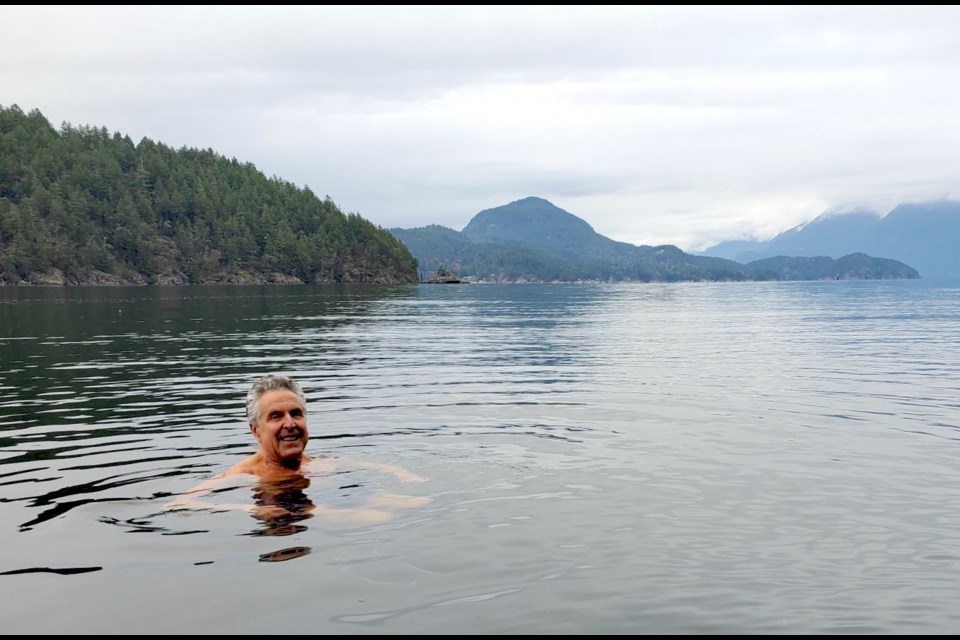On Oct. 13, for the 200th day straight, Charles McNeill took to the water, overcoming his trepidation of going into the ocean.
Inspired by islanders he calls Iceman (Lieven Callewart) and Icewoman (Judith Heezen), McNeill started his daily ocean dips in April, when temperatures were 6 C or 7 C, and continued through the summer and now into fall. While travelling, he’d find another body of water so as to not break the streak – a lake in Whistler, the ocean in Tofino – or, in the case of a business trip that required flying through England, Switzerland, and Austria, finally landing in Germany just in time to take a swim before midnight, in Lake Constance. “It turns out to be much more doable than my fear would have it,” says McNeill. “It adds a little bit of adventure to the day,” he says, and adds to his connection with nature. “There’s something primordial about being in that cold water and feeling alive and connected.”
“My relationship [with the ocean] has changed,” he says, an affinity has grown. “It’s a familiarity. It’s a closeness. It’s a respect and an appreciation.”
McNeill had tried before to do cold ocean swimming twice a month but could never stay in the water for more than 10 or 20 seconds. Callewart and Heezen taught McNeill to overcome the initial shock. “They showed me how deep breathing and screaming allows one to go through that threshold,” says McNeill. “And on the other side of that terror and pain is a deep relaxation and deep peace and an exhilaration.”
Even last Tuesday morning, as McNeill was set to head to New York City, where he lived and worked before the pandemic, he was out at 6 a.m. with a flashlight and a twinge of terror to jump into the ocean beneath the stars.
Unfortunately, the water in the East River by McNeill's apartment in New York City wasn't suitable for swimming, but he hopes to find a body of water to swim in in Glasgow, where the senior advisor on forests and climate for the United Nations is headed for COP26 next week.



